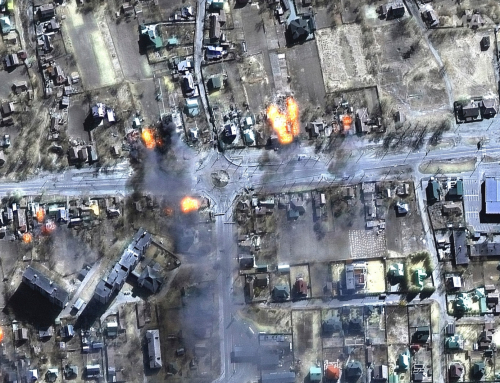The regulation of administrative offenses and administrative detention in particular are of grave concern to local and international human rights organizations, which has been clearly demonstrated several times, inter alia, by providing observations on the issue and expressing keen interest and will to participate in the process of reforming the national legislation in this regard, writes Sopho Verdzeuli, lawyer at Georgian Young Lawyer’s Association.
Within the framework of the reform, the draft Code of Administrative Offenses, aiming to improve the existing weaknesses, was sent to Council of Europe experts for evaluation. A few days ago, the Georgian government received the CoE experts’ observations on the draft Code. In response to the request the observations, the Inter-agency Council of the Ministry of Justice notified that it is an interim report, which needs further communication with the experts. Therefore the document is not public at this stage. Only after the recommendations are finalized will they be provided to the interested parties. Taking into consideration the serious deficiencies of the draft code and the risks of potential human rights violations deriving from the regulations provided by it, the participation of all relevant stakeholders even at this stage of the process should be accorded vital importance.
The main concerns regarding the Georgian system of administrative detention almost cover each other. One of the latest positions underlining the shortcomings of the regulation of administrative detention was expressed in the report of the UN Working Group on Arbitrary Detention. Before that, Human Rights Watch presented comprehensive analyses of the flawed system of administrative detentions in Georgia. The positions demonstrated in these reports and the concerns of local human rights organizations are in full conformity. All of them coherently criticize the regulations of administrative detention and their degree of compliance with the requirements of basic human rights.
Administrative offense or violation is a type of misdemeanor that cannot be qualified as a criminal offense. Nevertheless, under Georgian legislation, a person can be sanctioned with an administrative detention for up 90 days for such an offense. There is no doubt that administrative detention amounts to a criminal sanction in its severity. The fact that such a type of sanction can be imposed for an offense which cannot be qualified as criminal raises the questions about the expedience and relevance of using such a form of sanction and calls for its revision in a long-term perspective. A similar recommendation has already been expressed in the latest report from Human Rights Watch, which states that as part of the ongoing reforms of the Code of Administrative Offenses, it should also be considered abolishing administrative detention as a penalty for administrative offenses. The duration of administrative detention is another issue which raises concerns. Currently, Georgia holds the longest duration – 90days – among states where a similar form of sanction is practiced. Therefore, at the initial stage of the reform it is important to consider reducing the term of imprisonment among immediate changes.
Apart from the proportionality issue, the regulation of administrative detention includes other incompatibilities in the light of the basic human rights. For instance, the existing code, as well as the draft code, fails to fulfill the minimum requirements that should necessarily be met in the event of intrusion into an individual’s freedom with such intensity. They both fail to ensure guarantees of freedom of an individual and the right to fair trial, as envisaged by articles 5 and 6 of the European Convention of Human Rights, in particular:
The automatic pre-trial detention of a person if there is a motion for administrative detention runs counter to the standard established by the European Convention, according to which pre-trial detention shall be applied only in exceptional cases. An automatic character makes it incompatible with the presumption of liberty which exists in favor of an individual;
The regulation of an arrest of a person is not in conformity with the Constitution of Georgia as the draft doesn’t envisage the list of authorized agency for detention;
Apart from this, the draft fails to provide adequate guarantees for the person, including the right to be fully informed about the reasons for detention and the right to have access to a lawyer immediately after being detained. The draft doesn’t contain enough guarantees for the realization of the right to notify the family about the detention within reasonable time;
As pre-trial detention is an automatic stage before detention, the draft doesn’t recognize the right to release from custody pending trial which impedes the right to defense;
The right to defense is also undermined as the law does not provide for adequate time and opportunity to prepare a defense. Full access to the evidence is also not guaranteed;
The time for adjudication the case by the judge is not enough for full realization of adversarial proceedings, as the right to present evidence and call the witness are limited in practice;
Issue of evaluation of evidences is not determined. The draft doesn’t define admissible and inadmissible evidence;
A standard of proof is not envisaged, and this enables the court to make a decision about administrative detention solely based upon a motion and an explanation by a police officer. This issue is highly related to the right to a judgment based on reasoning;
The draft doesn’t correspond adequately to the right to appeal, as it fails to provide a list of admissibility criteria for an appeal.
Apart from this, the draft provides a novelty which is called administrative agreement and which is similar to the plea bargaining institute in criminal proceedings. The regulation of administrative agreement allows the imposition of administrative detention and/or fine upon the agreement between an administrative agency and a person concerned. Even though an agreement has to be proved by the court, it is noteworthy that the standard of proof for such cases – reasonable doubt – is not defined in the draft code. Moreover the standard of proof is already low in examination of administrative cases that allows a judge to treat a motion and the statement of a police officer as independent pieces of evidence. Therefore, the possibility to impose administrative detention upon an administrative agreement will jeopardize adequate legal guarantees for an individual concerned.
The conditions for enforcing administrative detention should also be mentioned in this context. Despite the fact that several changes have been made in the relevant pieces of legislation, the issue still remains problematic and calls for additional steps in regard to improving the conditions in temporary detention isolators.
All these shortcomings should be adequately responded to within the framework of the ongoing reform to ensure the realization of basic human rights requirements during court proceedings and enforcement of sanctions. Apart from this, the complexity and diversity of the issue make it expedient to increase the participation of all relevant stakeholders, even at this stage of the process.





Leave A Comment
You must be logged in to post a comment.